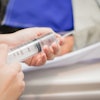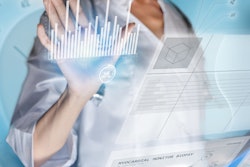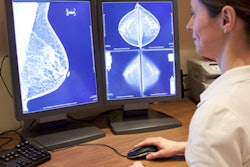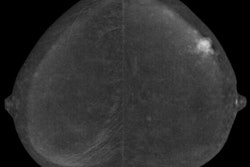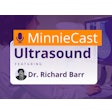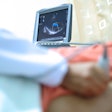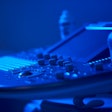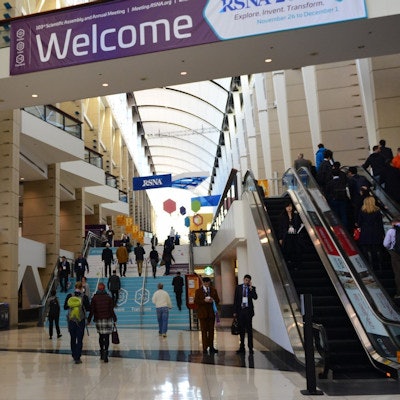
CHICAGO - Handheld whole-breast ultrasound (WBUS) performed by mammography technologists can be a time-efficient method for adjuvant screening of women with dense breasts, according to research presented Wednesday at the 2019 RSNA meeting.
A research team from Yale School of Medicine in New Haven, CT, led by Dr. Liane Philpotts tracked the workflow and results for WBUS performed by technologists at their institution on women with dense breasts. They found that the technologists efficiently performed handheld WBUS, needing only an average of just over 12 minutes of scanning time per case. What's more, the studies did not need to be rechecked by a radiologist in approximately 90% of the cases.
"As the majority of cases are normal and do not require recheck, radiologist time involvement is minimal," Philpotts said.
Technologist-performed handheld WBUS has been performed at their institution since 2009 following adoption of a breast density notification law in Connecticut, Philpotts said.
"With 38 states currently now with density laws and new federal breast density notification legislation in the U.S., more facilities will likely be interested in offering this service to patients in the future," she said.
In their study, the researchers sought to understand the workflow details around WBUS practice in terms of the time requirement for both technologists and radiologists. They also wanted to assess the final outcome of the cases, according to Philpotts.
WBUS exams performed following a normal tomosynthesis screening mammogram were prospectively recorded for two one-month periods: February 2019 and October 2019. These exams were performed at four sites, including a tertiary cancer center and three outpatient satellite offices.
The WBUS studies were acquired by 28 mammography technologists who were cross-trained in breast sonography using handheld ultrasound. Dedicated breast radiologists were also present to check cases and to rescan if necessary, Philpotts said.
All mammography technologists were cross-trained in breast sonography via peer training and instruction from a breast radiologist. An internally developed 6- to 8-week program of stepwise breast sonography training is provided, with the technologists then going on to receive board certification, she said. Of the 31 mammography technologists on staff, 28 (90%) have been cross-trained in breast sonography.
Technologists record ultrasound images of all four quadrants, the retroareolar area, and the axilla. They also document any findings of interest, she said.
For the research study, data recorded for each exam included: technologist scanning time, if a recheck was needed by a radiologist, radiologist scanning time, the reason for recheck, and the final BI-RADS score. To avoid bias, technologist identifiers were not recorded, according to the researchers.
| Data analysis of two months of whole-breast ultrasound exams performed by mammography technologists on women with dense breast tissue | ||
| February 2019 | October 2019 | |
| No. of exams | 616 (602 bilateral, 14 unilateral) | 854 (828 bilateral, 26 unilateral) |
| Average scanning time for bilateral exams | 12.5 minutes (range: 4-34 minutes) | 12.4 minutes (range: 4-31 minutes) |
| Average scanning time for unilateral exams | 5.1 minutes (range 2-7 minutes) | 5 minutes (range: 2-9) |
| Cases with rechecks performed by radiologist | 67 (10.8%) | 78 (9%) |
| Average radiologist scanning time | 3.3 minutes (range: 2-7 minutes) | 3 minutes (range: 1-10) |
"The results were very similar [for each month]," Philpotts said.
The reasons for rescans by radiologists were also comparable for both months, and they included cyst/fibrocystic changes, mass/masses, artifact/normal fibroglandular tissue, scans/prior biopsy, prominent lymph nodes, fat necrosis, implant rupture, rechecking of prior finding, and fat lobule.
As for final BI-RADS categories, 96.6% of the exams in February and 98% of the studies were BI-RADS 1 and 2. In addition, 2.6% of the cases in February and 1.1% of the exams in October were BI-RADS 3. There were 0.8% BI-RADS 4 and 5 cases in February and 0.9% such exams in October, according to the researchers.
"The majority of cases are normal and really do not require a recheck by the radiologist, and those that do require only a very small amount of radiologist scanning time," Philpotts said.



